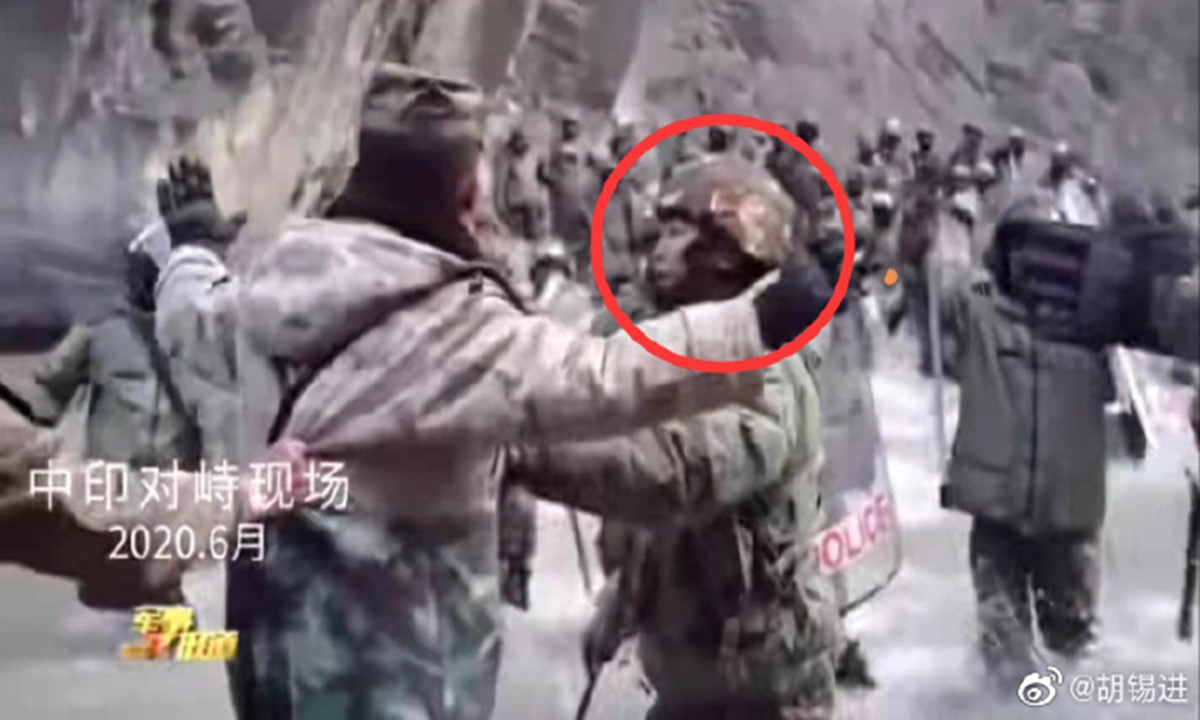
Screenshot
In the video of the Galwan Valley clash released by China, Qi Fabao, the regimental commander from the People's Liberation Army Xinjiang Military Command, along with fellow PLA soldiers, opened up their arms in the river to intercept the Indian soldiers who were trespassing the border.
In the video, an Indian Captain named Soiba Maningba Rangnamei faced the camera. He was quite eye-catching and therefore benefited from the video. He was applauded by Manipur Chief Minister N. Biren Singh. Before that, he was commended with the "Gallantry Award" in January.
Rangnamei is from one of the Naga tribes, an ethnic group native to northeastern India and northwestern Myanmar. In order to integrate into the mainstream society of India, they often showcase their warfare prowess with acts. In the video, it can be clearly seen that Rangnamei and Indian soldiers were forcibly crossing the river and charging ahead. Qi and PLA soldiers were clearly stopping them in the river. The river is usually the demarcation of the border, or line of actual control. The video is solid evidence that the Indian army was destroying peace on the border area and trying to change the status quo there.
The Indian side's awarding of Rangnamei has encouraged the Indian army to be reckless. If Indian side promotes such an ideology, it will put the country at long-term risks.
At least 20 Indian soldiers died during the Galwan Valley clash, far more than China's loss. While Indian society boasts with pride, deep down it actually feels frustrated about its army's inabilities. As one of the frontline Indian soldiers who initiated the bloody fight, Rangnamei took a chance to became famous by stamping on the corpses of his companions. I'd like to suggest that Indian soldiers like him should be prudent. If they always trigger bloody clashes at the border, they won't be that lucky next time.
I understand that every country and nation gives credit to their border troops. But in an era when peace is the most important and most valuable, the bravery of soldiers is not reflected in their rashness to cross the border or the Line of Actual Control. Real bravery should instead involve their determination to safeguard peace at the line.
In that video, Rangnamei, who ferociously rushed forward, showed the "bravery" of a bandit. By contrast, Qi stood in the river and opened up his arms to stop him—he was displaying real gallantry. Some Indians feel honored rather than ashamed by this video. This indicates the rotten extremes of nationalism in the country.
The author is editor-in-chief of the Global Times. opinion@globaltimes.com.cn




